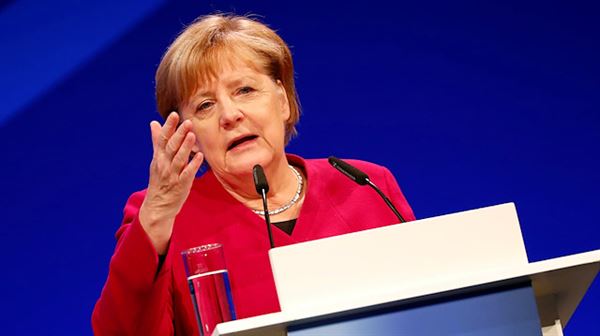Germany's Social Democrats (SPD) will on Saturday announce the winner of a party leadership ballot, whose first task will be to decide whether to quit
Germany’s Social Democrats (SPD) will on Saturday announce the winner of a party leadership ballot, whose first task will be to decide whether to quit the ruling coalition with Chancellor Angela Merkel’s conservatives.
The oldest party in Germany is in turmoil after a run of dismal regional and European election results and a six-month long leadership race which has left them trailing in polls. Many members want to leave government and rebuild in opposition.
That, however, could trigger a snap election or a minority government – unappealing options for both the SPD and conservatives. After 14 years of leading Germany, home of Europe’s biggest economy, Merkel has said she will not run again.
The SPD will announce the result of a 10-day ballot of its roughly 426,000 members at about 6 p.m. (1700 GMT) and delegates are set to approve the choice at a party conference on Dec. 6-8 where they will also vote on the coalition.
Two pairs of candidates are running on joint tickets and the choice boils down to whether members want to stick with the grand coalition or rethink.
The best-known candidate and probably frontrunner is Olaf Scholz, finance minister and deputy chancellor, a centrist criticised by the left of his party for following his former conservative predecessor Wolfgang Schaeuble’s fiscal caution.
With the backing of the SPD establishment and lawmakers, he and his little known running mate Klara Geywitz want to continue in the coalition.
Challenging them is Norbert Walter-Borjans, a former regional finance minister, nicknamed Robin Hood for cracking down on tax dodgers with secret Swiss bank accounts.
He and his leftist running mate Saskia Esken are highly critical of the coalition and say they want to renegotiate the 2018 coalition deal with more focus on social justice and investment – if necessary with a budget deficit.
If the conservatives refuse, Esken has said she would recommend walking out of government.
The winner faces a mammoth task. In 2017, the SPD’s share of the vote slumped to its lowest level since 1933. It is now around 15% in polls, trailing the Greens and conservatives and only just ahead of the far-right Alternative for Germany (AfD).
